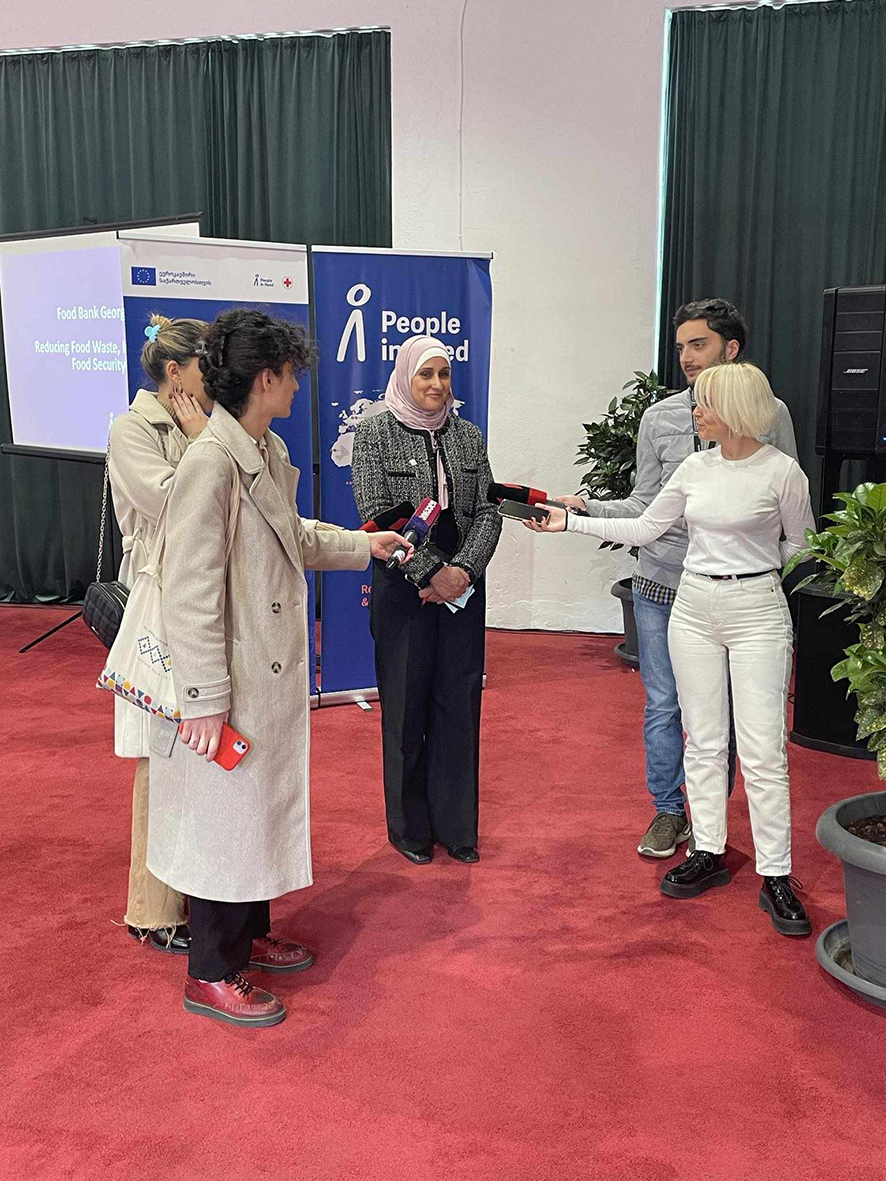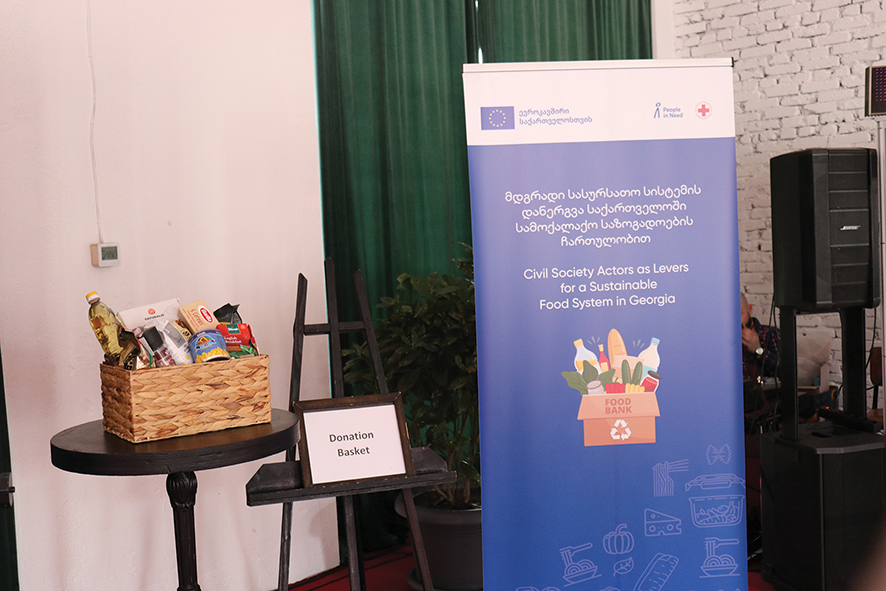An important eco-friendly project has been added to the growing list of good work ongoing in Georgia: The EU-funded project ‘Civil Society Actors as Levers for a Sustainable Food System in Georgia,’ a collaboration between People in Need (PIN), the Georgian Red Cross (GRC), the Czech Development Agency (CzDA), Parki ar Minda (PAM), and Eliots.
The initiative combines the expertise of its diverse partners to address pressing issues related to food waste and insecurity, and its main goals are to see civil society actors empowered to support the reduction of food waste and to increase food security in Georgia, with a specific objective of having civil society actors and the local action group effectively contribute to reducing food waste and increasing food security of vulnerable populations in Tskaltubo municipality in the Imereti region.
The launch event of the new project was held at Stamba Hotel on March 13, gathering representatives from various governmental, non-governmental and international organizations, as well as the private sector.

Sofia Janjua, the Country Director of PIN Georgia, opened the event with a welcome speech, underlining the project’s importance and its capacity to bring about meaningful transformation. Mr. Catalin Gherman, Deputy Head of Cooperation at the Delegation of the European Union to Georgia, representatives of the Czech Development Agency, government officials, and delegates from FAO and the European Food Banks Federation (FEBA) contributed their perspectives, underscoring the significance of establishing Georgia’s first Food Bank as a sustainable initiative for ensuring food security and addressing the challenges of food loss and waste prevention.
The EU-funded project, set to run from 2023 to 2026, will pilot a food bank initiative to address local food insecurity by redistributing unsold food items, and will test the impact of the new Law on Food Loss and Waste Reduction, Food Recovery and Redistribution. The initiative, which draws on PIN’s and the Red Cross movement’s global expertise in food security, waste management and climate change mitigation, also seeks to empower local civil society actors to facilitate the identification of food-insecure individuals, provide food to vulnerable populations, cooperation with local farmers, and run awareness campaigns on food waste and food losses.
- Reduction in food waste and farm gate losses.
- Reduction in greenhouse gas emissions.
- Decrease in food insecurity among the local population.
The keynote speakers at the launch included Khatia Tsilosani, First Deputy Chairperson of the Environmental Protection and Natural Resources Committee of the Georgian Parliament; Kakha Kakabadze, Deputy Minister of Environmental Protection and Agriculture; Jumber Maruashvili, Senior Policy Advisor at the Food and Agriculture Organization of the UN, and Balazs Cseh, European Food Banks Federation (FEBA).
Target groups include Food Business Operators (FBOs), such as supermarket retailers, distributors, and HORECA actors in Tskaltubo and Tbilisi; primary food producers (farmers) in Tskaltubo municipality and the surrounding areas; consumers and restaurant goers; food insecure people in Tskaltubo and the surrounding areas; government entities, including the Ministry of Environmental Protection and Agriculture (MEPA), National Food Agency (NFA), Ministry of Finance (MoF), Revenue service, Agrarian Issues Committee; the Parliament of Georgia and Tskaltubo municipality; and the Food and Agriculture Organization of the United Nations (FAO).

GEORGIA TODAY spoke to project manager Sofia Tvaradze to find out more. First, we asked why Tskhaltubo was chosen for the food bank project.
“We identified Tskaltubo due to the critical issue of food insecurity faced by certain community members there, particularly low-income families, single-parent households, internally displaced people (IDPs) and the elderly,” she tells us. “To comprehensively address this issue, our project takes a two-pronged approach. We will collaborate with retailers and suppliers in Tbilisi to secure donated food items, while also partnering with Tskaltubo’s agricultural sector to incorporate fresh local produce. Ensuring access to nutritious options is a key priority. The project will focus on acquiring and distributing a balanced variety of food items to meet the specific dietary needs of the vulnerable population.”
Will it be expanded nationwide, and if so, based on what results?
We hope it will be replicated in other regions and municipalities of Georgia, depending on how successfully we manage to set-up the Food Bank operating mechanism.
How are each of the three goals expected to be achieved?
The food bank intervention will redistribute unsold food items donated by food business operators, otherwise destined for landfills, to food insecure people in the municipality of Tskaltubo. This pilot intervention will test the impact of the new Law on Food Loss and Waste Reduction, Food Recovery and Redistribution expected to be approved later this year. The action will empower LAG [ed. Local Action Group] Tskaltubo and other local civil society actors, including registered CSOs and informal groups, to facilitate the provision of food to local food insecure people. This will include their involvement in the identification of food insecure people, distribution of food items from the food bank, their role in facilitating the cooperation of local farmers with surplus produce and the municipal soup kitchen, and an accompanying information campaign assuring people of the safety of donated food.
Redistribution of unsold food items and surplus produce will result in a reduction of food waste and farm gate losses, leading to a reduction in greenhouse gas emissions, while at the same time reducing the rate of food insecurity among the local population.
Furthermore, the LAG and CSAs will be provided with training and resources to run awareness raising campaigns on the issue of food waste and food losses, leveraging their networks in the community to influence behavior change at the local level.
By Katie Ruth Davies













